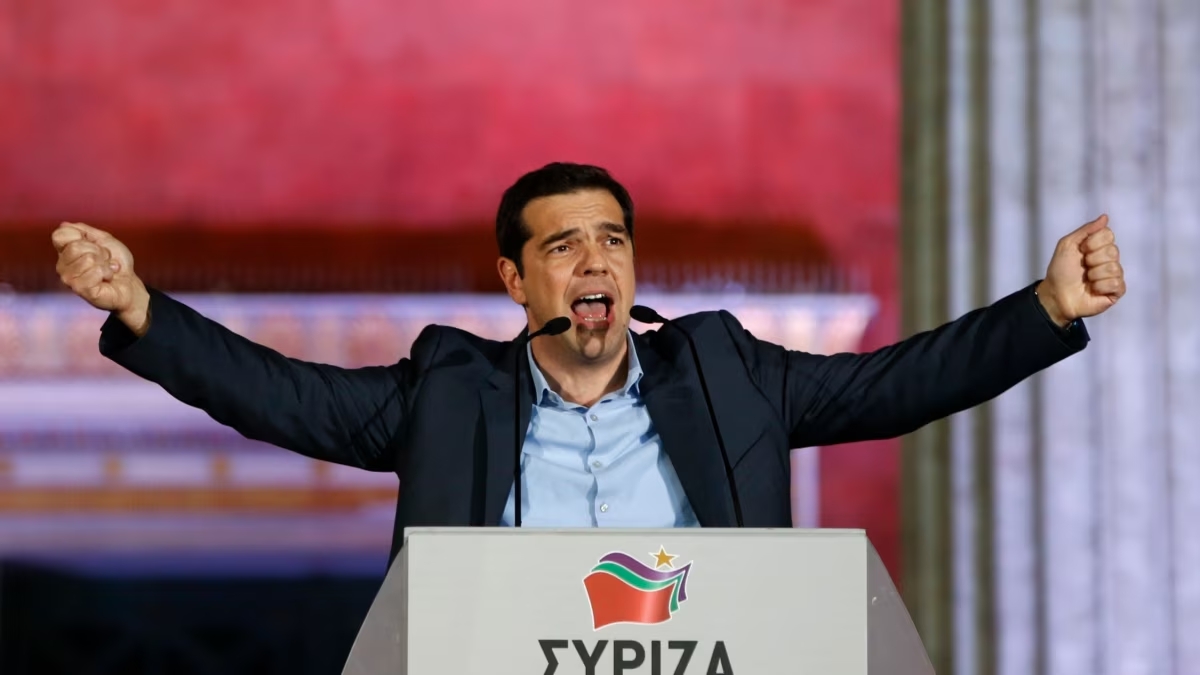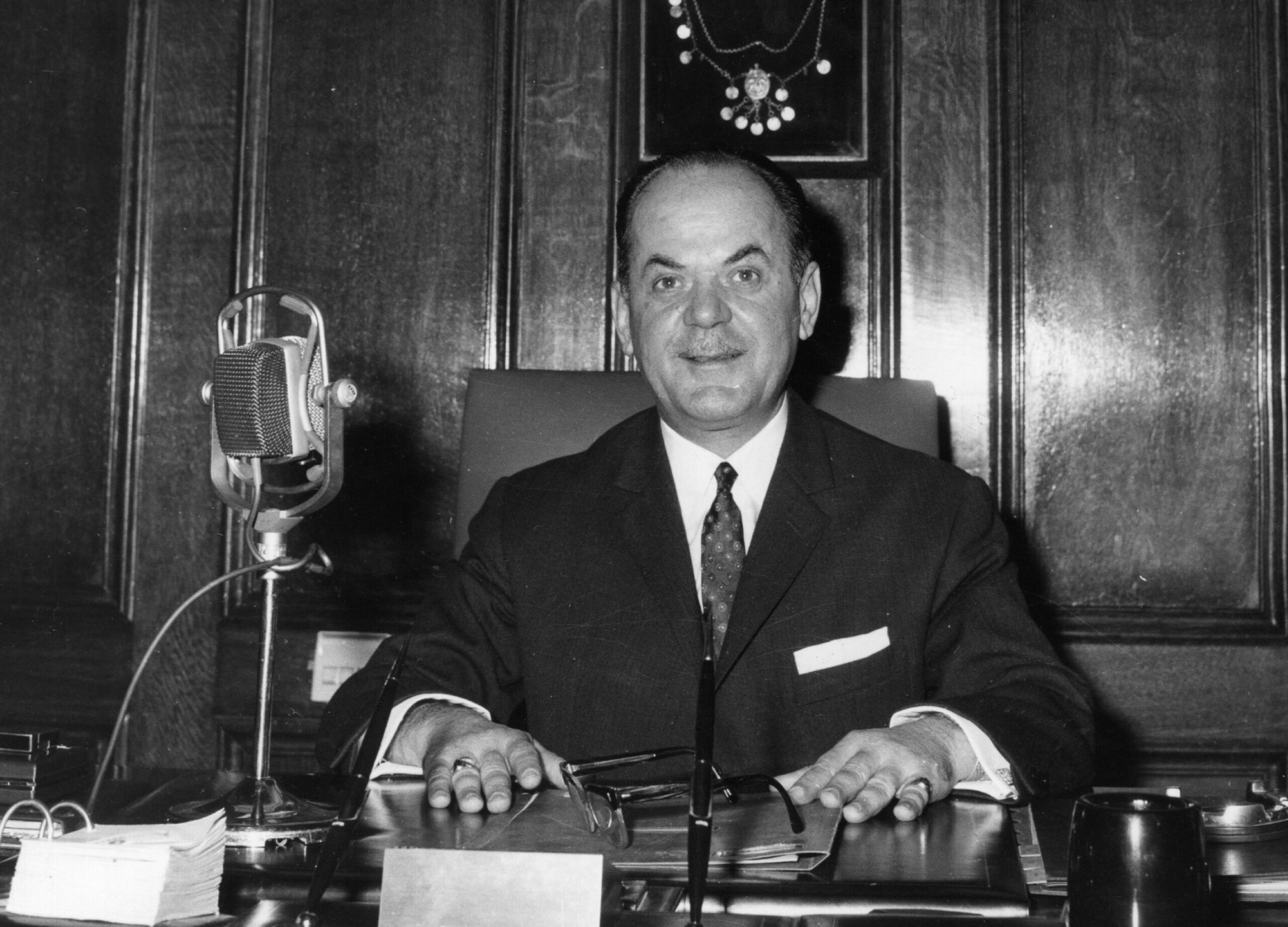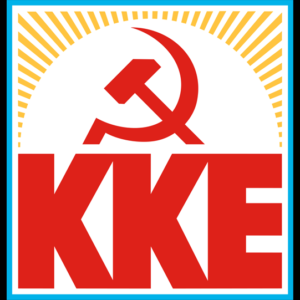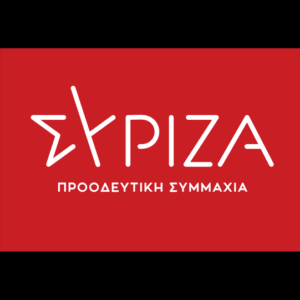Synaspismos was one of several factions who joined to form Syriza (Coalition of the Radical Left) in 2004. The party had modest success in its early years. It was the Greek financial crisis which turned Syriza into the major left wing party in Greece, capitalising on the dissatisfaction with the austerity deal that the government (a grand coalition of Pasok and New Democracy) reached with the so called troika (EU, ECB, IMF).
Syriza won snap elections held in January 2015, and party leader Aleksis Tsipras became prime minister, with Yanou Varoutakis taking the position of finance minister. Trying to deliver on their promise to the voters to renegotiate the loan agreement, they travelled to European capitals, in a failed attempt to persuade the leaders of other countries to accept their opposition to austerity policy. The refusal of the Syriza government to implement the troikas proposed reform of pensions and the labour market led to a stalemate. In June 2015, Tsipras asked for an extension of the deadline for the loan payment, having called a referendum on the terms of the bailout. The troika refused to extend the deadline, but after Tsipras got the result he wanted in the referendum, new negotiations started and Greece under Syriza’s leadership accepted most of the demands of the creditors. This led to splits within Syriza, Tsipras being accused of betraying the radicalism of the movement. After losing many MP:s, Tsipras called a new snap election in August 2015. Surprisingly, the voters returned Syriza and its coalition partner ANEL to government with basically the same support as in the previous election. This government then went on to rule Greece until 2019.
Syriza has been described as an emblematic case of European left wing populism in the 2000s. According to political scientist Cas Mudde, Syriza constitutes a “rejuvenated form” of Greek left populism, characterised by overpromises on which they seldom deliver. By opponents and also some experts, Syriza has been accused of authoritarian ideals and methods, some arguing that they tried to push through similar reforms as national populist leaders in Hungary and Poland.
These accusations have been exemplified by a proposed electoral reform, interference in the actions of government agencies and their media policy. In 2016, the Syriza government wanted to regulate the media market and limit the number of licences issued, which would mean that half of Greece’s eight TV channels would have to shut down. The government argued that reform of the licensing system was necessary to reduce corruption in the media industry and increase the revenue to the treasury. The idea was that the TV broadcasting licences would be auctioned with a starting price of 3 million euros, but a number of TV channels appealed the decision to the Supreme Court, arguing that the auction violated the constitution because the auction was run by the government instead of the independent State Media Council
Both New Democracy and Pasok claimed that the auction was an attempt to gain “absolute control” over the media and that Syriza showed a lack of respect for democracy and freedom of expression. Greece’s Supreme Court invalidated the auction in October 2016. However, Syriza, and especially the minister Nikos Pappas who was responsible for the auction, were unrelenting in their ambitions to reform the Greek media industry: “Legal decisions do not make governments, only the people do,” said Pappas.










